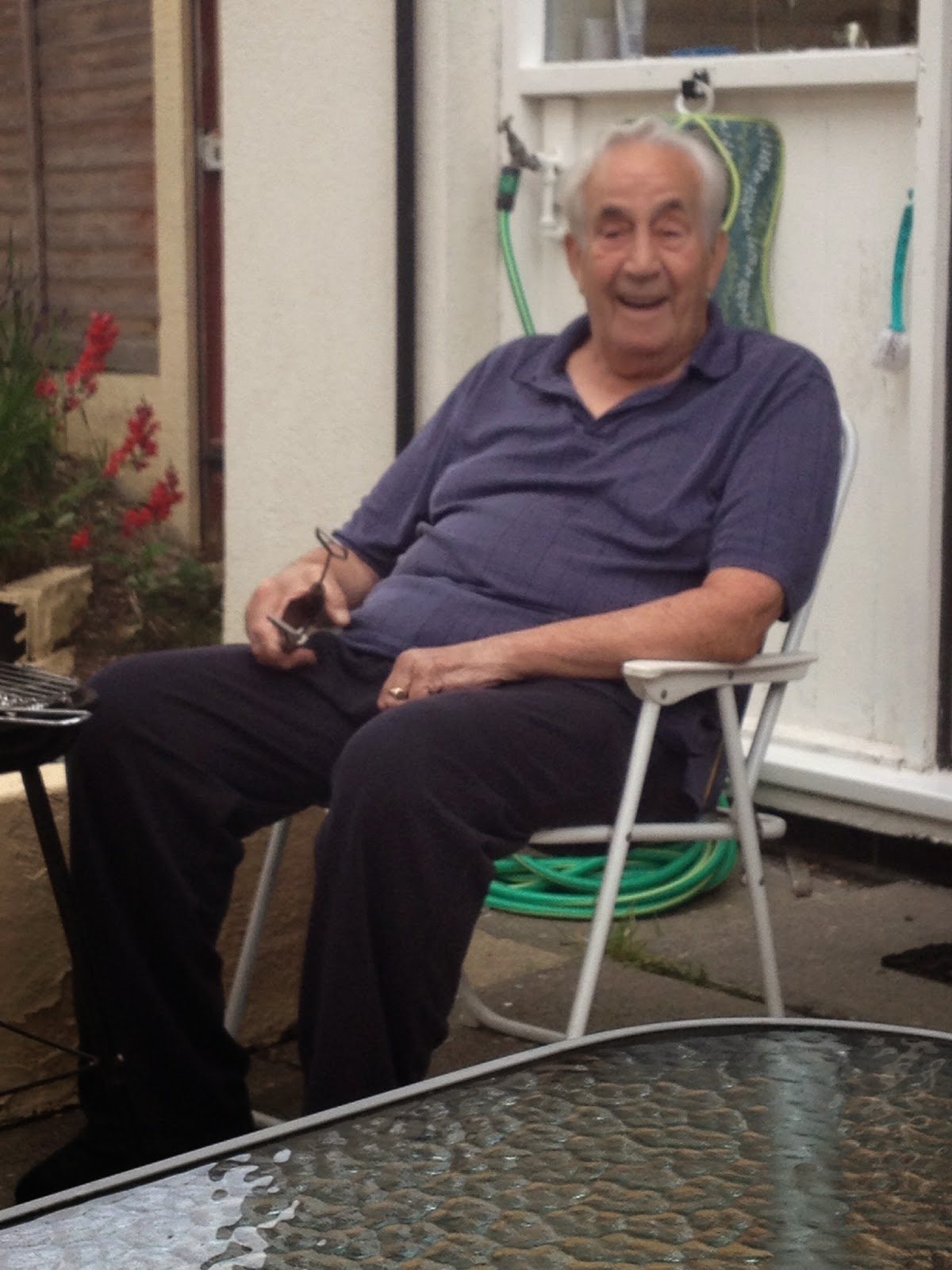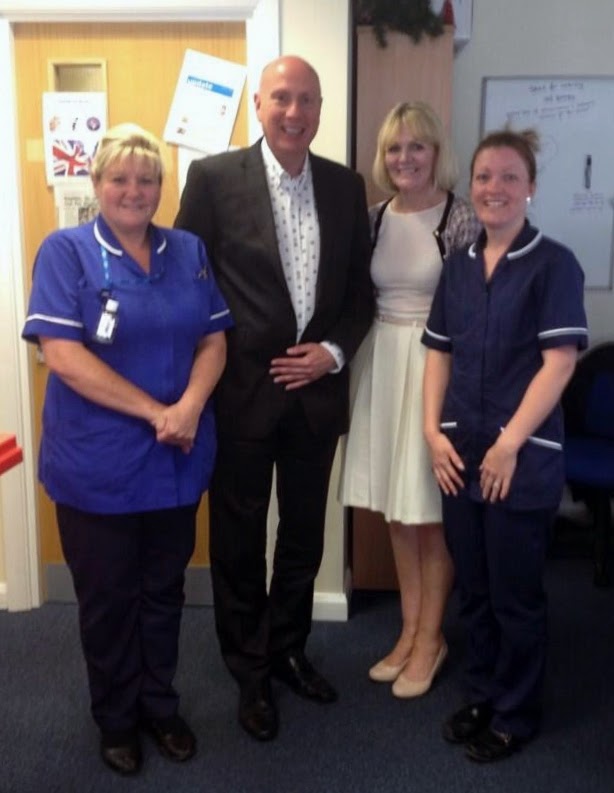We recently held an event at SalfordRed Devils ground in support of the charity, Rugby League Cares (RLC) and the great work of the
charitable foundations across rugby league. The event was supported by Pennine
Care, the Red Devils Foundation and the One Medical
Group.
In Pennine Care, we believe health and
wellbeing work is most successful when it is delivered in communities, in ways
that make sense to local people. All too often we promote healthy messages, or
health professionals tell people to stop smoking, drink less or lose weight,
without truly thinking through how hard it can be to stop or change something
to improve your health.
Rugby League Cares and the charitable
foundations of rugby league’s professional clubs and State of Mind promote health and
wellbeing – with a difference. Firstly, they know their communities and their
communities know them. It opens doors and rugby league fans will listen to
ambassadors from their clubs, maybe more than they would their GP. Secondly, to
quote one of the speakers at the event, Professor Alan White, “there’s more to
sport than sport”. Sport reaches people and communities in a unique way the NHS
could never replicate.
Mike Farrar and Professor White spoke
at the event about this. There’s more on sport and health here and here.
There is an emerging evidence base for
sport and how it promotes physical activity and improves health. We don’t do
enough to promote this. It is this link that led me to be interested in working
with rugby league partners to bring together the event, which aimed to launch
the idea of ‘A Year of Health and Wellbeing in Rugby League’.
I was fortunate enough to open the
event with my own personal experience and it went something like this…
“In welcoming everyone today, rather
than talking about health policy or the work of the NHS, I just wanted to share
a personal reflection on how the great game of rugby league positively
influences people’s lives.
This is Mick, known to some as
Michael, in the Army he was called Mac. I call him Dad. There he is barbecuing
aged 88. Dad’s a lifelong Leeds Rugby League, now Leeds Rhinos, fan. He was at a
very famous final in 1968 to see Leeds win a very close game in difficult wet
conditions.
As I grew up, from a an early age he would
take me to many Leeds games at Headingly and as a tradition we would go on
Boxing Day to watch Leeds play at home. Dad’s love of rugby league and many
sports rubbed off on me. He would talk about how fit players were and how
important it was to look after your health. He encouraged me to be active, to
play sport and to play team games. I played rugby through school and beyond.
I'm convinced that Dad’s love of Leeds rugby league and the sport in general was a key reason I had such a positive experience of sport as young boy and as a young man.
I'm convinced that Dad’s love of Leeds rugby league and the sport in general was a key reason I had such a positive experience of sport as young boy and as a young man.
Terry Flannagan, Chair of Rugby League
Cares, talks about how people benefit immensely from their experience of rugby
league. I definitely did.
The work of Rugby League Cares and the
professional clubs’ charities and foundations understand communities, rugby league communities, like
the one I grew up in, and they know how to bring the game and its positive
image into people's lives to influence and improve health and wellbeing. Their
work and their contribution is often unheralded. Hopefully we can shine a light
more on their great work.
As Terry says the foundations are
champions helping hundreds of thousands of people to lead healthier and
wealthier lives. Rugby League Cares, the foundations and the ground breaking
mental health work of State of Mind are ambassadors for the game and
ambassadors for better health in rugby leagues game and its communities.
Whenever health is mentioned we
usually think of the NHS. Health isn't the NHS. Health is something we own, our
health and something the NHS plays a part in. But in talking too much about the
NHS we talk too little about the difference the foundations, State of Mind and
others can make and do make to people's health and wellbeing. Today is about
bringing their work to the front more. I believe we the NHS can do more to
promote and support their great work and the benefits of that will pay for
themselves.
I think we should think of today in
two ways, as a celebration of what's already been achieved and as a challenge
for 2015 to achieve even more.”
The event went very well and there was
a real energy about the possibilities of promoting health through rugby league’s
connection with its grassroots communities.
I found something really interesting
during the day and the notion has stayed with me since. It links to these lines
from my opening welcome; ‘Whenever health is mentioned we usually think of the
NHS. Health isn't the NHS.’
A number of people came up to me and
said that comment had really struck a chord with them. As one person said to
me, “If there’s one message I will take from today it’s that health is my
health, not something the NHS will sort out when I get ill, but something for
me to look after. I’m responsible for my health and to sort it out before I get
a heart attack, not wait for the NHS to fix something after I have one.”
I think we do, all too often, think of
health as the NHS. This is symptomatic of the dependency model we have created
over many decades. The NHS is a provider of healthcare, to people who need
support when their health deteriorates or when we can protect against illness,
for example immunisation.
Health isn’t the NHS, it is something
we experience, we literally live and breathe it every day. We can’t control our
health entirely, some accidents and illnesses can’t be foreseen or prevented,
but we can improve our health significantly by taking as much responsibility
for it as we can.
In trying to shine a light on Rugby
League Cares, the Clubs’ Foundations and State of Mind at this recent event, we
made a small attempt to nudge our collective thinking away from health is the
NHS. The work of these charities (look them up) is phenomenal and they reach
hundreds of thousands of people every year, helping people make better health
decisions and get more active. They do a lot for small amounts of investment,
so they are good value too.
If we are to provide care outside of
hospital, if we are to provide health and wellbeing support that communities
engage with, then the solution won’t be the NHS. It has a part to play, a very
important role. However, the NHS has to work with and embrace partners and
together we have to build a very different health offer. One that gives health
back to people and moves it away from the dependency model of the NHS.



